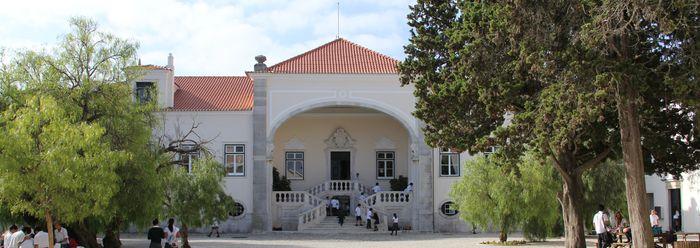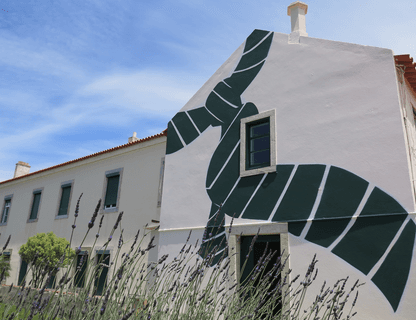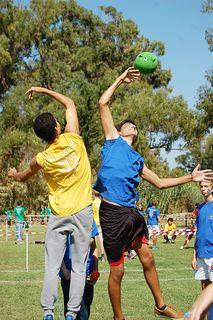Secondary English Teacher
St. Julian's School
Portugal
- Expiring soon
- Quick apply
- Job type:
- Full Time, Fixed Term
- Apply by:
- 2 May 2024
Job overview
We are seeking to appoint an experienced and innovative English Teacher for August 2024. This is an excellent opportunity to join our Secondary section’s dynamic English faculty. There are over 600 students in the secondary following a bespoke curriculum in Key Stage 3 before going on to study CIE GCSE and IB Diploma English Language and Literature or English Literature. A small number of students are entered for the GCSE ESL and English B Diploma courses each year. There are 9 full-time members of the team led by a Head of Faculty and a Deputy Head of Faculty. We are proud of our care of students and all teachers are expected to play an active role in pastoral care as a form tutor or support tutor. We recommend applying as soon as possible as the School may start the interview process during the application period.
About St. Julian's School
Founded in 1932, we are a highly successful, non-selective 3-18 British international school with a reputation for academic excellence. We currently have just over 1,200 students from over 50 different nationalities. The School has three sections: Primary, Secondary and Bilingual. The Secondary Section is a four-form entry and has 630 students.
Google Apps for Education is used across the whole school as a learning and administration platform and all teaching staff are given their own MacBooks Air.
We are accredited by CIS (Council of International Schools), COBIS (Council of British International Schools) and NEASC (New England Association of Schools and Colleges). Our Head is an International Member of HMC (Heads' Conference).
Teacher job description
Core purpose
To facilitate the learning of students and promote the effective development of all individuals in our learning community. Our learning ethos is based on our aim to establish a framework for students and teachers to be engaged and challenged, for parents to be assured and excited by the opportunities we provide to ensure that our students develop the attributes which will allow them to become the compassionate, curious, collaborative communicators with the courage to be the active citizens the world needs.
Learning
- To facilitate the learning of students in a (or more than one) specific subject area(s)
- To mentor and support students in their learning
- To develop a personalised approach to learning that enables every child to succeed and understand the diverse learning capacities of students
- To develop necessary interventions in and out of the classroom where a child is not making expected progress
- To plan appropriate sequences of lessons to support student learning
- To develop appropriate ongoing assessments to enhance student learning
- Use a variety of teaching strategies fundamental to school pedagogy in ways that stimulate learning and inspire students
- Integrate technology to enhance learning
- Keep up to date with subject knowledge and approaches to pedagogy.
Wellbeing
- To work with tutors and pastoral leaders to ensure that student wellbeing is paramount
- To liaise with the Safeguarding leads and complete the necessary referral forms if a child is deemed at risk
- Promote intercultural understanding and respect for diversity among all students.
Professional growth
- To identify areas of potential growth each year and commit to developing oneself in this area
- To visit other classrooms to enable the sharing of good practice
- To invite peers into the classroom to enable the sharing of good practice
- To participate fully in professional development opportunities in and out of school
- To initiate and work on opportunities to develop own practice related to the learning essentials.
- To share professional learning with colleagues.
Teamwork
- To collaborate as part of a team to produce sequences of learning
- To support other colleagues to grow and develop.
Personal strengths
- Displays empathy and understanding for the diverse learning capacities of students and designs lessons accordingly
- Promotes intercultural understanding and respect for diversity among all students
- Uses a variety of teaching strategies fundamental to school pedagogy in ways that stimulate learning and inspire students: project and enquiry-based learning, collaborative methodologies, interdisciplinary approaches, discussion, reflection and sound instructional teaching.
- Integrates technology into teaching and learning to enhance research and media literacy, facilitate collaborative work and consolidate digital citizenship protocols among students
- Demands honesty from students in their approach to academic work and respect in their social intercourse
- Is confident in subject knowledge and conversant with contemporary educational thinking
- Encourages students to take responsibility for their education by showing them how best they may reflect on their learning. Set high expectations which inspire, motivate and challenge pupils
- Provides opportunities for the student voice to be heard through welcoming risk-taking and divergent and innovative thinking
- Makes a significant contribution to the pastoral life of the school
- Makes a significant contribution to the wider curriculum of the school.
Person specification
Essentials
- Be educated to a degree level in English or a relevant subject
- A recognised teaching qualification, for example, a PGCE or a BEd
- At least three years experience in the UK (preferably) at Key Stage 3
- A commitment to professional growth and development
- Excellent IT skills to support teaching and learning
- Enthusiasm that inspires others
- Demonstrate experience of excellent teaching
- Positivity, perseverance and a good sense of humour.
Desirable
- Experience teaching GCSE English
- Experience teaching English for the IB Diploma
- Experience teaching Language B or English as a Second Language
Benefits
We will provide
- A competitive salary and benefits package
- Two-year contract, renewal by mutual agreement
- A relocation allowance for expatriate staff, including flights (start and end of contract)
- Medical and life insurance
- Lunch allowance
- A professionally stimulating and collaborative working environment
- Relocation package for an international appointment.
Application process
Applications should be addressed to Paul Morgan, Head of School, and submitted through the TES portal. The closing date for applications is Thursday 2 May. You must provide two references, one must be from the head/principal of your current/most recent school. We strongly recommend early applications as interviews may be arranged before the closing date.
Safeguarding
St. Julian’s School is committed to safeguarding and promoting the welfare of children and expects all staff and volunteers to share in this commitment. The offer of the role will be made subject to receipt of satisfactory references, proof of relevant qualifications, identification checks and criminal record screening including overseas (where appropriate).
About St. Julian's School
School profile
St. Julian’s School is a private co-educational not-for-profit school founded in 1932 with a strong record of academic achievement and extra-curricular activity. Located on a beautiful site in Carcavelos, between central Lisbon and Cascais, St. Julian’s has three sections, each with its own Principal: Primary, Bilingual and Secondary.
St. Julian’s has an outstanding academic reputation in Portugal and overseas, and has grown into a learning community of just over 1,200 students of more than 60different nationalities, aged from three to 18. Although academic achievement is a priority, St Julian’s strives to foster independence, versatility, love of learning, self-discipline and personal excellence in every student. Since 1998, St Julian’s has been jointly accredited by the Council of International Schools (CIS) and by the New England Association of Schools and Colleges (NEASC). St Julian’s is also authorised by the IBO to offer its senior students the International Baccalaureate Diploma programme. The School is an Accredited Member of the Council of British International Schools (COBIS) and our Head is a member of The Heads' Conference (HMC).
St Julian’s is a place where children can thrive, inspired by dedicated and passionate teachers. At St. Julian’s the curriculum is adapted to reflect the community’s roots in Portugal as well as the international nature of its student body, and enriched by the School’s own curriculum development strategies.
From Nursery (age 3+) to Year 11 (age 16+) St. Julian’s models the curricula on those currently mandated to schools in England by the UK Department for Education. The Early Years Foundation Stage (EYFS) embraces the two years of Nursery and Reception, ages three to five. Thereafter students progress through the Key Stages of the curriculum.
The Secondary section attempts to nurture in each student a sense of self-confidence and happiness; students are encouraged to speak up for themselves and relationships between teachers and students are lively, engaging and stimulating. At the end of Key Stage 4, students take a series of public examinations (GCSE and IGCSEs).
After age 16, St. Julian’s prepares students for university by offering courses leading to the International Baccalaureate Diploma. St. Julian’s consistently achieves extraordinary results. This success can be attributed to factors such as the strength, talent and hard work of our students, and the immense dedication and care of our teachers.
Please note that you are wholly responsible for fact checking in respect of the information provided by schools. Please also check for the latest visa and work permit requirements that may apply. Tes is not responsible for the content of advertisements or the policies adopted by advertising schools. Tes asks that all schools follow Tes' Fair Recruitment Policy.




